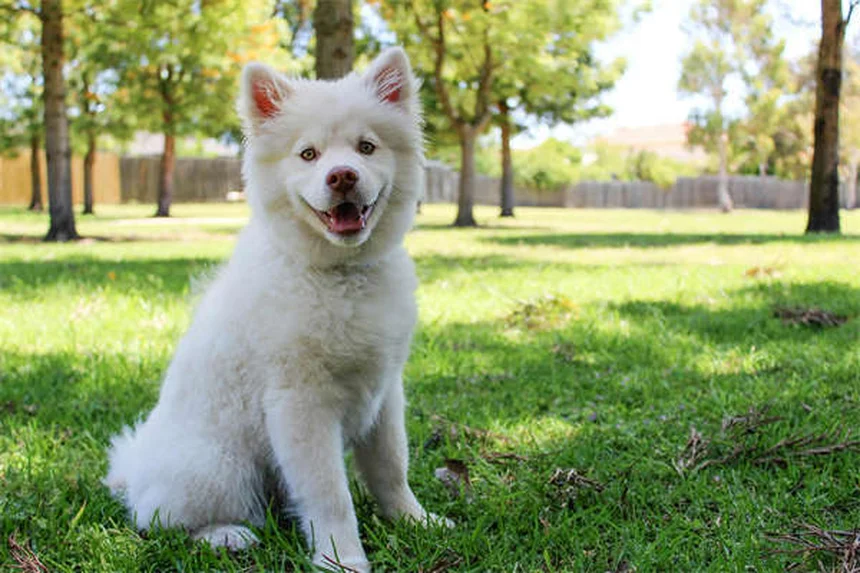Does your dog suffer from seasonal allergies? The answer is yes - just like us humans, our furry friends can absolutely develop seasonal allergies that make them miserable. I've been through this with my own labrador Daisy, watching her scratch relentlessly every spring until we found solutions that actually work.Here's the deal: seasonal allergies in dogs are caused by common environmental triggers like pollen, mold, and dust mites. When these allergens hit, your pup's immune system overreacts, leading to that endless cycle of itching, licking, and discomfort. The good news? While we can't cure seasonal allergies completely, we can manage them effectively with the right approach.In this guide, I'll share exactly what worked for Daisy and countless other dogs I've researched - from vet-approved medications like Zenrelia to simple home remedies that provide real relief. You'll learn how to spot allergy symptoms early, prevent secondary infections, and create an allergy-friendly home environment that keeps your best friend comfortable all season long.
E.g. :Why Do Dogs Stare at You? 5 Surprising Reasons Explained
Advertisement
- 1、Does Your Dog Have Seasonal Allergies?
- 2、Getting Your Dog Relief
- 3、Prevention Is Possible
- 4、Living With an Allergic Dog
- 5、Beyond the Basics: More Allergy Insights
- 6、Alternative Approaches Worth Trying
- 7、Allergy Testing: Is It Worth It?
- 8、Traveling With an Allergic Dog
- 9、FAQs
Does Your Dog Have Seasonal Allergies?
Spotting the Signs
You know how miserable seasonal allergies make you feel - well guess what? Your furry best friend can suffer too! When pollen counts rise, many dogs start licking their paws like they're made of peanut butter or scratching themselves silly. Some even develop those stinky ear infections that make you go "Phew!" when they shake their heads.
Here's what to watch for: excessive licking (especially between toes), red irritated skin, frequent ear infections, and constant scratching. My neighbor's golden retriever, Max, starts doing this weird butt-scooting thing every spring - turns out it's his allergy acting up! The most common trouble spots are paws, ears, belly, and around the eyes.
Why Do Allergies Happen?
Imagine your dog's immune system is like an overprotective parent - it freaks out at harmless things like pollen or mold. When these allergens show up, your pup's body goes into defense mode, releasing histamines that cause all that itching and irritation. The main culprits are:
| Allergen | Peak Season |
|---|---|
| Tree Pollen | Spring (March-May) |
| Grass Pollen | Late Spring/Summer |
| Weed Pollen | Fall (August-October) |
| Mold Spores | Summer/Fall (humid weather) |
Getting Your Dog Relief
 Photos provided by pixabay
Photos provided by pixabay
Vet-Prescribed Solutions
When my labrador Daisy starts her seasonal itch-fest, our vet recommends a combo approach. Zenrelia works wonders for immediate relief - it's like hitting the mute button on itch signals to her brain. For stubborn cases, we might add:
- Apoquel or Cytopoint injections for long-term control
- Medicated shampoos to soothe her irritated skin
- Ear cleaners to prevent those smelly infections
- Sometimes even allergy shots if her reactions are really severe
Home Care That Actually Helps
Did you know wiping your dog's paws after walks can remove up to 80% of pollen? It's one of those simple tricks that makes a big difference. Here's what else you can try:
1. Fish oil supplements - they're like armor for your dog's skin
2. Cool oatmeal baths (just don't let them drink the bathwater!)
3. Keeping windows closed on high pollen days
4. Washing bedding weekly in hot water
Prevention Is Possible
Timing Is Everything
Here's a pro tip: start treatment before allergy season hits. If you know your pup always gets itchy in April, begin their meds in mid-March. It's much easier to prevent the itch than to stop it once it starts. I learned this the hard way when Daisy scratched herself raw one spring - now we're always prepared!
Wait - can dogs outgrow seasonal allergies? Unfortunately no, but with proper management, they can live completely comfortable lives. The key is consistency with their treatment plan and keeping an eye out for early warning signs.
 Photos provided by pixabay
Photos provided by pixabay
Vet-Prescribed Solutions
If you notice any of these red flags, pick up the phone:
- Constant scratching that interrupts sleep
- Hot spots or open sores
- Smelly ears or excessive head shaking
- Red, inflamed skin that looks painful
Remember, untreated allergies can lead to serious skin infections. It's always better to be safe than sorry when it comes to your furry friend's comfort!
Living With an Allergic Dog
Making Your Home Allergy-Friendly
Think of your house as a safe zone from allergens. Here's how we've adapted:
- Hardwood floors instead of carpet (pollen loves carpet!)
- HEPA air filters in every room
- "Paw-washing" station by the door
- Hypoallergenic bedding that gets washed weekly
Is all this effort worth it? Absolutely! Seeing Daisy comfortable and itch-free makes every extra step worthwhile. Plus, our house smells better without that "doggie allergy" odor.
The Emotional Side
Let's be real - watching your dog suffer with allergies is heartbreaking. I've lost count of how many sleepless nights I've spent listening to Daisy scratch. But here's the good news: with today's treatments, no dog has to live with constant discomfort.
The most important thing? Don't get discouraged if the first treatment doesn't work perfectly. Like people, every dog responds differently. It took us three tries to find the right combo for Daisy, but now she sails through allergy season like a champ!
Beyond the Basics: More Allergy Insights
 Photos provided by pixabay
Photos provided by pixabay
Vet-Prescribed Solutions
While we typically blame pollen and mold, did you know your dog might react to lawn fertilizers or even your perfume? I once switched laundry detergents and poor Daisy broke out in hives! Common household items that can trigger reactions include:
- Air fresheners and scented candles
- Flea/tick preventatives (some dogs react to certain formulas)
- Cleaning products used on floors
- Even some dog shampoos marketed as "natural"
Here's a funny story - my cousin's poodle started sneezing uncontrollably every time they visited. Turns out the dog was allergic to their new leather couch! We had to cover it with blankets during visits. The moral? Allergies can come from the strangest places.
Breed-Specific Considerations
Ever wonder why some breeds seem itchier than others? Bulldogs, Retrievers, and Terriers top the allergy charts, while breeds like Poodles and Schnauzers tend to have fewer issues. Check out this comparison:
| Breed | Allergy Risk | Common Reaction Areas |
|---|---|---|
| Golden Retriever | High | Paws, ears, belly |
| French Bulldog | Very High | Face folds, paws |
| Poodle | Low | Occasional ear issues |
| Dachshund | Medium | Back, belly |
But here's something interesting - mixed breeds aren't necessarily safer! My friend's labradoodle has worse allergies than his purebred parents. Genetics work in mysterious ways.
Alternative Approaches Worth Trying
Natural Remedies That Actually Work
Before you dismiss "hippie solutions," hear me out. When Daisy's allergies first appeared, we tried everything from local honey (helps some dogs build tolerance) to coconut oil rubs (great for dry skin). The winners in our book:
- Quercetin supplements - nature's version of antihistamines
- Probiotics to boost gut health (surprisingly connected to skin health)
- Aloe vera gel for hot spots (just make sure they don't lick it off)
- Chamomile tea rinses for irritated paws
Would I rely solely on these? Probably not for severe cases, but they make excellent complements to vet treatment. Plus, they're way cheaper than some prescriptions!
The Diet Connection
Here's something most people miss - what goes in your dog's bowl affects their allergy symptoms. After switching Daisy to a salmon-based diet rich in omega-3s, we noticed a 40% reduction in her scratching. Foods that can help:
1. Fatty fish (salmon, sardines)
2. Pumpkin (great for digestion)
3. Blueberries (packed with antioxidants)
4. Bone broth (heals gut lining)
But beware of common allergens in dog food like chicken, beef, wheat, and soy. Many "allergy" dogs do better on novel proteins like venison or duck. It's trial and error, but worth the effort.
Allergy Testing: Is It Worth It?
Blood Tests vs Skin Tests
When Daisy's allergies got really bad, our vet suggested testing. Did you know there are two main types? Blood tests check for antibodies, while skin tests expose small areas to allergens. Here's the scoop:
- Blood tests are easier (just one needle stick) but less accurate
- Skin tests require sedation but pinpoint exact triggers
- Neither is 100% perfect - you'll still need to observe reactions
- Costs range from $200-$600 depending on your location
Was it worth it for us? Absolutely! Discovering Daisy reacts to 12 different grasses helped us avoid certain parks. Knowledge is power when battling allergies.
Interpreting Your Results
Here's where it gets tricky - just because your dog tests positive for an allergen doesn't mean it's causing symptoms. Our vet explained it like this: "The test shows potential reactions, but your dog's actual behavior tells the real story." Some key points:
- Focus on allergens that match seasonal symptoms
- Don't eliminate everything at once - go slowly
- Keep a symptom diary to track patterns
- Retest every 2-3 years as allergies can change
Remember, no test replaces your careful observation. You know your dog best!
Traveling With an Allergic Dog
Pre-Trip Prep That Pays Off
Taking Daisy on vacation used to mean packing half the pharmacy. Now we've got it down to a science. Our must-haves:
1. Portable paw washer (game changer!)
2. Travel-sized medicated shampoo
3. All-natural anti-itch spray
4. Extra allergy meds (in case we lose some)
5. Familiar bedding to reduce stress reactions
Pro tip: Research vets at your destination before you go. I learned this after a panicked 2am search when Daisy reacted to hotel cleaning products.
Destination Considerations
Did you know some locations are naturally better for allergy dogs? We've found coastal areas with ocean breezes (fewer pollens) work best for Daisy. Places to potentially avoid:
- Heavy agricultural areas (high mold counts)
- Mountain regions (certain tree pollens)
- Big cities (pollution can worsen symptoms)
- Extremely dry or humid climates
But here's the good news - with proper planning, your allergic pup can enjoy vacations too! We've had wonderful trips by simply choosing the right locations and being prepared.
E.g. :Signs your pet has seasonal allergies — and what you can do to help
FAQs
Q: What are the most common signs of seasonal allergies in dogs?
A: The most obvious signs your dog has seasonal allergies include excessive licking (especially their paws), constant scratching, recurrent ear infections, and red, irritated skin. Many dogs also develop what we call "allergy face" - rubbing their muzzle on furniture or carpet. My Daisy gets this telltale saliva staining on her paws from nonstop licking. You might also notice head shaking, butt scooting, or darkening/thickening of the skin in chronic cases. These symptoms typically flare up during specific seasons when certain pollens are high.
Q: How can I tell if it's seasonal allergies vs food allergies?
A: Great question! The biggest clue is timing. Seasonal allergies come and go with the seasons, while food allergies cause year-round symptoms. If your dog only gets itchy in spring and fall, it's likely environmental. Also, seasonal allergies often affect specific areas like paws, ears and belly, whereas food allergies frequently cause issues around the face and rear end. Of course, your vet can help confirm with tests, but keeping a symptom diary really helps identify patterns.
Q: What's the fastest way to relieve my dog's allergy itching?
A: For immediate relief, Zenrelia or Apoquel are game-changers - they can start working within hours to block itch signals. I always keep some on hand for Daisy's flare-ups. Medicated shampoos with oatmeal or hydrocortisone provide quick soothing too. But here's my pro tip: start treatment before allergy season hits. It's much easier to prevent the itch cycle than break it once it starts. Also, wiping paws after walks removes allergens before they can cause irritation.
Q: Are there any natural remedies that actually work for dog allergies?
A: Absolutely! While severe cases need medical treatment, these natural approaches can help: Omega-3 fish oil supplements (like Welactin) strengthen the skin barrier over time. I add this to Daisy's food daily. Coconut oil applied topically soothes irritated skin, and regular ear cleaning with a gentle solution prevents infections. Just remember - "natural" doesn't always mean safe, so check with your vet before trying new remedies, especially essential oils which can be toxic to dogs.
Q: How can I make my home better for a dog with seasonal allergies?
A: Creating an allergy-friendly home makes a huge difference! Here's what works: HEPA air filters trap airborne allergens, washing bedding weekly in hot water kills dust mites, and hardwood floors are better than carpet for reducing pollen accumulation. I set up a "paw washing station" by our door - just a shallow tub of water where Daisy steps in after walks. These simple changes, combined with her treatment plan, have transformed our allergy seasons from miserable to manageable.

